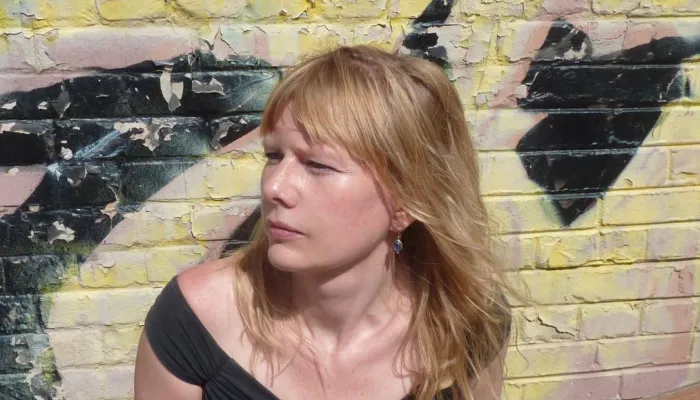More than a storey high and twice that long,
it looks igneous, the Buhler Versatile 2360,
possessed of the ecology of some hellacious
minor island on which options
are now standard. Cresting the sections
in a corona part dirt, part heat, it appears
risen full-blown from our deeper needs,
aspirating its turbo-cooled air, articulated
and fully compatible. What used to take a week
it does in a day on approximately
a half-mile to the gallon. It cost one hundred
fifty grand. We hope to own it outright by 2017.
Few things wrought by human hands
are more sublime than the Buhler Versatile 2360.
Across the road, a crew erects the floodlit
derricks of a Texan outfit whose presumptions
are consistently vindicated.
The ancient sea bed will be fractured to 1000 feet
by pressuring through a pipe literal tons
of a fluid — the constituents of which
are best left out of this —
to tap the sweet gas where it lies like the side
our bread is buttered on. The earth shakes
terribly then, dear Houston, dear parent
corporation, with its re-broken dead and freshly
killed, the air concussive, cardiac, irregular.
It silences the arguments of every living thing
and our minds in that time are not entirely elsewhere.
But I was speaking of the Buhler Versatile 2360
Phase D! And how well recognized it is
among the classics: Wagner,
Steiger, International Harvester, John Deere, Case,
Minneapolis-Moline, Oliver, White, Allis-Chalmers,
Massey Ferguson, Ford, Rite, Rome.
One could say it manifests fate, forged
like a pearl around the grit of centuries. That,
in a sense, it’s always been with us,
the diesel smell of a foregone conclusion.
In times of doubt, we cast our eyes
upon the Buhler Versatile 2360
and are comforted. And when it breaks down, or thinks
itself in gear and won’t, for our own good, start,
it takes a guy out from the city at 60 bucks an hour
plus travel and parts, to fix it.
- The poet Karen Solie grew up on a farm in Saskatchewan. What does this poem tell you about the speaker’s view of farm life?
- It’s helpful to know that this poem was first published in The Walrus in 2008, so the line “We hope to own it outright by 2017” was looking nearly a decade into the future at the time. What do these details about the cost of the tractor suggest about the economics of farming in Canada?
- What is going on across the road from the farm in this poem?
- Do you get the sense that the tractor works for the farm or that the farm works for the tractor? How does the poet elevate the machine above everything else around it?
- If you were going to recite this poem, what tone would you use? Lofty? Breezy? Who do you imagine the speaker is talking to?
- Write a poem about an inanimate object in your life. Be playful, but try to say something interesting about your life through the way you present this object.
Useful Links
Read our micro-interview with Karen Solie: http://poetryinvoice.ca/poets/karen-solie
See Karen read from her most recent book, The Road In Is Not the Same Road Out: https://www.youtube.com/watch?v=kaFqFmLP34Q
Check out this Google image search on the Buhler Versatile 2360:
Karen Solie, “Tractor” from Pigeon (House of Anansi Press, 2009). Copyright © 2009 Karen Solie.
Source: Pigeon (House of Anansi Press, 2009).





